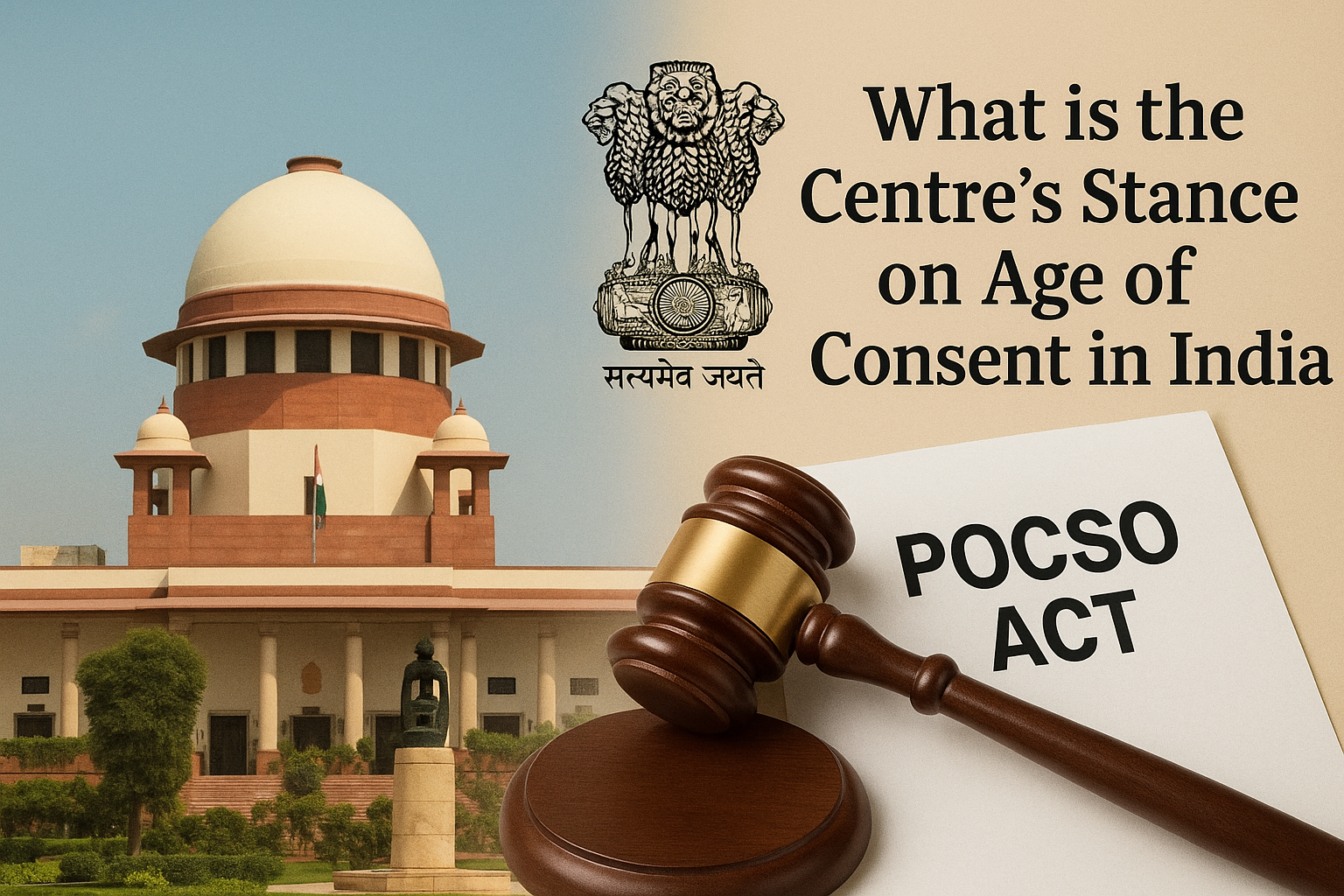The Center’s defence of the age of consent at 18 in the Supreme Court focuses on protecting minors from sexual abuse and sexual exploitation and highlights the importance of uniform implementation of Child protection laws like the Protection of Childern from Sexual Offences Act (POCSO ACT) and BNS (Bharatiya Nyaya Snhita).
Why is it Debatable in the Supreme Court ?
The Union Government strictly opposes lowering the age of consent from 18 to 16, attributing risks of sexual trafficking and child’s mental and physical abuse. The Central Government of India has upheld the legal age of consent at 18 years under the POCSO Act,2012, praying the Supreme Court not to reduce.
The Government highlights the importance of age of consent as a deliberate, well recognised policy to protect vulnerable minor groups from sexual trafficking and abuse. The government firmly argues that reducing the age to 16 would respect adolescent autonomy, stating such a move risks diluting child protection and enabling abuse of the child.

ED – Conviction rate is too low
What Are The Legal Provisions That Support The Union Government ?
Section 2(d) of the POCSO Act,2012
The section 2(d) of the Protection of Children from Sexual Offences Act,2012 the word “CHILD” means any person below the age of 18 years.
Section 3 – POCSO ACT, 2012
Under this section, Whoever commits penetrative sexual assault on a child shall be punished with rigorous imprisonment which shall not be less than seven years but which may extend to imprisonment for life.
Section 375 – Indian Penal Code
Under this section of the IPC, defines Rape and excludes the consent of a person below eighteen years as valid.
Reference case : Independent Thought vs Union Of India 2017
Section 63 – BNS 2023
Under section 63 of the BNS, it is proposed for safeguarding adolescent relationships while preventing misuse. This is to provide protection without criminalizing consensual adolescent relationships.
What is the risk of lowering the age ?
Lowering of the age of consent by the legal commission would open the “floodgate” to the sexual trafficking, and other forms of child abuse the veil of assent, conceivably reversing decades og development in the child protection laws.
Recent updates on the issue
On 08th August, 2025
The Union Government submitted detailed arguments to the Supreme court by the Additional Solicitor General upholding any dilution of the age of consent under Protection Of Children From Sexual Offences Act, 2012, focusing on child vulnerability and the need to uphold protections against exploitation.
Conclusion
The government’s arguments underlines the importance of a cautious, well-considered approach to the adolescent consent laws, balancing protection with identification of adolescent rights, while focusing on the need for judicial discretion and administrative clarity to prevent misuse and safeguard minor’s interests.
Author’s Information
Modiam Maha Lakshmis is a law student currently pursuing final year (3 years LL.B) from ISBR Law College, Bangalore. With a keen interest in Constitutional law, Contract law, Criminal Law and Civil law, she is eager to learn more from the judicial decisions and share the knowledge.

